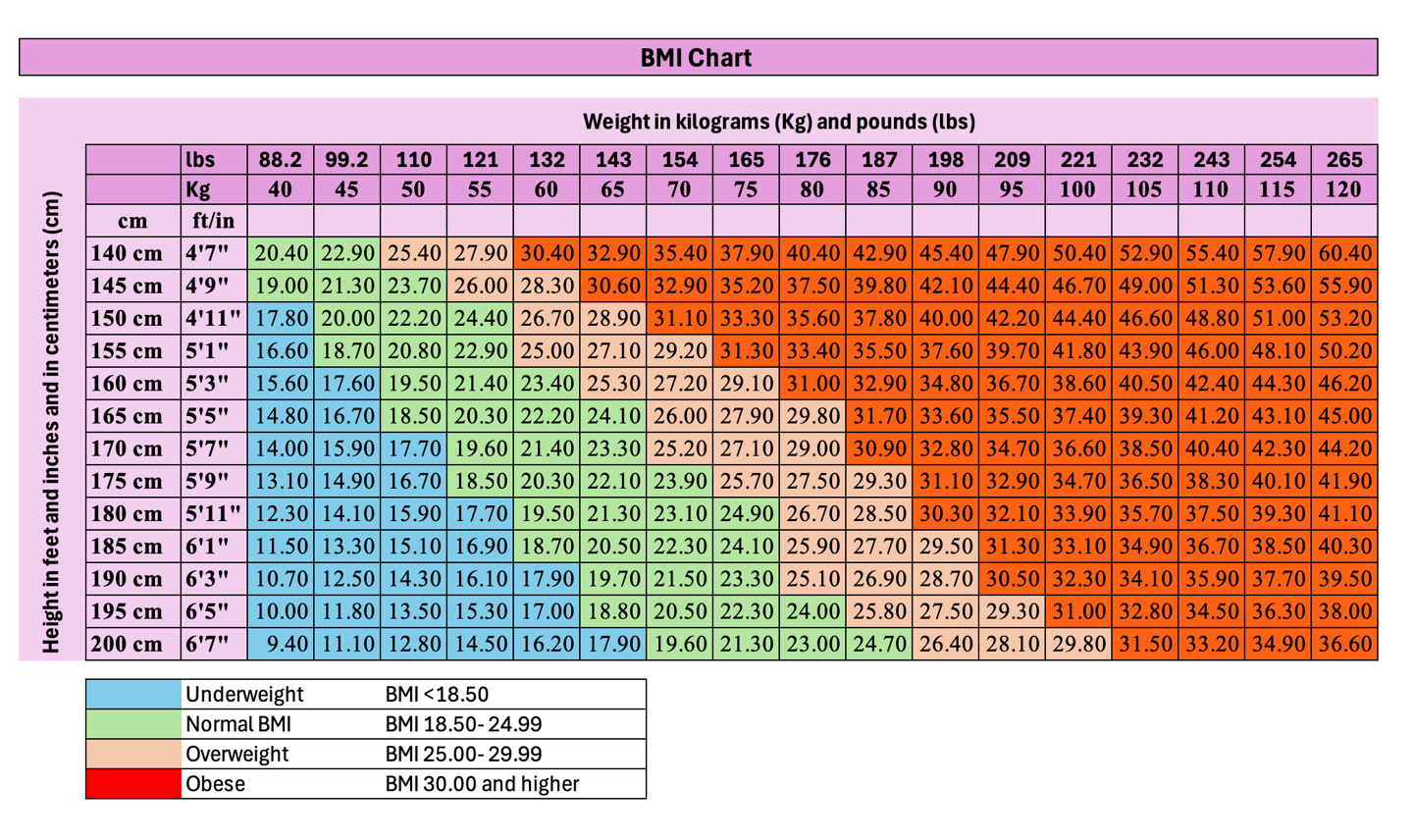Stay updated on what is trending in health. Discover tips and resources for a healthier, balanced life.
Recent Posts
What is BMI and How to Calculate your BMI
BMI (Body Mass Index) is a simple index of weight-for-height that is commonly used to classify underweight, overweight, and obesity in adults. It is defined as the weight in kilograms divided by the square of the height in meters (kg/m²).
The formula to calculate BMI is:
BMI=Weight (kg) / Height (m)²
Example:
An adult who weighs 68 kg and whose height is 175 cm (1.75 meters) will have a BMI as follows:
Convert height to meters: 175 cm = 1.75 m
Use the formula: BMI= Weight (kg) / Height (m)² = 68 / 1.75^2 = 68 / (1.75 x 1.75) = 22.20
So, the BMI of a person who weighs 68 kg and is 1.75 meters tall is 22.20.
This is a healthy BMI value, which falls within the normal weight range according to the World Health Organization (WHO) standards. Please refer to the following chart for BMI values corresponding to different heights and weights.
After measuring your height and weight, you can calculate your BMI using the formula provided above and find the corresponding value in the chart.
According to WHO, these BMI values are independent of age and apply to both sexes. However, BMI may not reflect the same level of body fat across different populations due to variations in body proportions. The table provides a simplified link between BMI and the risk of comorbidities, though this risk can be influenced by various factors such as diet, ethnicity, and physical activity levels. The risks associated with an increasing BMI are gradual and start at a BMI above 25. The interpretation of BMI categories in relation to risk may vary across different populations.
BMI helps categorize weight into different ranges (underweight, normal weight, overweight, and obesity) to indicate potential health risks associated with body fat. While BMI is a simple and accessible measure, it does not directly measure body fat percentage or distribution, which can vary by age, sex, and muscle mass. Despite its limitations, BMI is useful for identifying individuals at risk for conditions like heart disease, diabetes, and hypertension.
References
Obesity : preventing and managing the global epidemic : report of a WHO consultation.


Testimonials
Invaluable health resource!
Satisfied Customer
"
"
Pulse Your Health
Empowering you to achieve your health goals.
Contact
© 2025. All rights reserved.
Disclaimer: The content on this website is for informational purposes only and is not medical advice. Always seek the advice of your physician or other suitably qualified healthcare professional for diagnosis, treatment and your health related needs.
